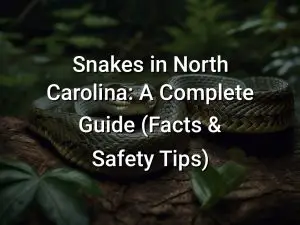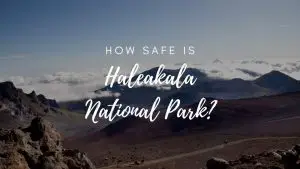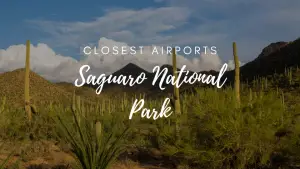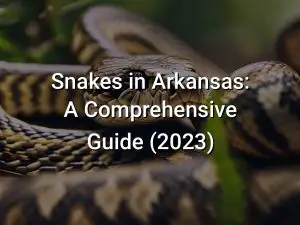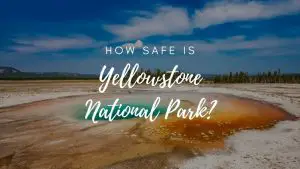Is Great Basin National Park Safe? (2023)
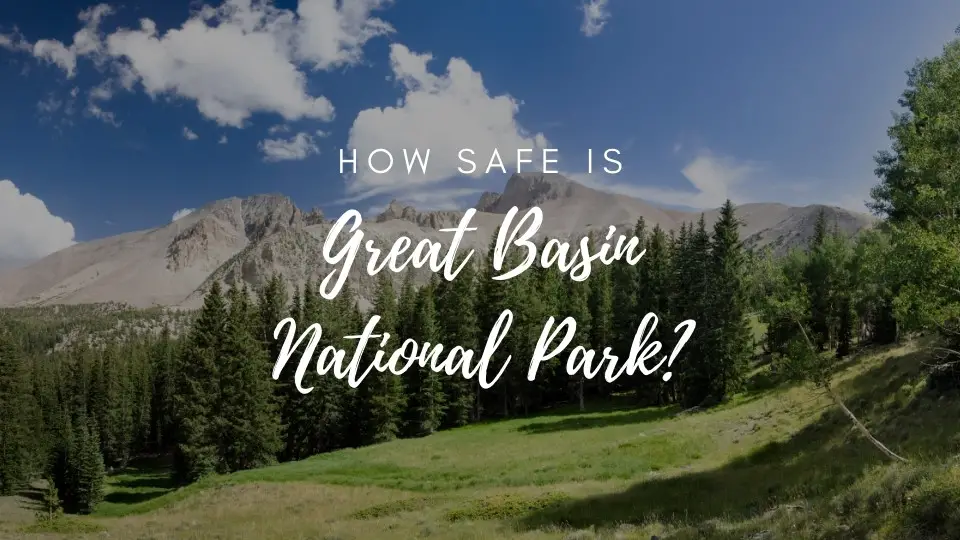
Great Basin National Park is a national park in Nevada. The park is known for its Wheeler Peak, which is the tallest mountain in the state. Great Basin National Park is also home to the Lehman Caves, which are a popular tourist destination.
So Is Great Basin National Park Safe? Yes, Great Basin National Park is safe. There are no major safety concerns in the park. However, there are some minor safety risks that hikers should be aware of. These risks include getting lost, being injured while hiking, and encountering wildlife.
Quick Links
What Are The Biggest Dangers At Great Basin National Park?
Great Basin National Park is home to some of the most incredible scenery in the United States. The park is full of towering mountains, pristine lakes, and beautiful forests. But like all national parks, there are certain dangers that visitors should be aware of. In this blog post, we’ll cover the biggest dangers at Great Basin National Park.
Great Basin National Park is located in Nevada, and it’s known for being a great place to see the night sky. The park is also home to the largest trees in the world, the bristlecone pines. These trees can live to be over 5,000 years old!
Although Great Basin National Park is a beautiful place, there are certain dangers that visitors should be aware of. The main safety concerns at the park are the terrain, wildlife, and weather.
The terrain at Great Basin National Park can be very challenging, and there are many areas that are only accessible by experienced hikers. There are also some areas of the park that are prone to avalanches.
The wildlife at Great Basin National Park includes bears, mountain lions, and snakes. Visitors should be aware of these dangers and take precautions when hiking in the park.
The weather at Great Basin National Park can be extreme, and visitors should be prepared for cold weather, high winds, and thunderstorms.
In the following sections, we’ll cover each of these dangers in more detail.
Is Great Basin National Park Safe At Night?
Hiking and camping are great ways to enjoy the outdoors, but it’s important to be aware of the potential dangers, especially when hiking at night. Low visibility is the biggest danger, as it’s easy to trip and fall. There’s also the potential for wildlife encounters, as many animals are more active at night.
There are some specific dangers to be aware of when hiking in Great Basin National Park at night. The most important safety precaution is to always hike with a partner. It’s also a good idea to bring a flashlight, as the trails can be very dark. Be aware of your surroundings and make noise to avoid startling wildlife. And finally, be sure to stay on the trails – venturing off-trail can be very dangerous in the dark.
Is It Safe To Go Alone To Great Basin National Park?
Most people tend to think of hiking as a relatively safe activity. After all, you’re just walking around in nature. However, there are some risks involved in hiking, especially if you’re hiking alone. It’s important to be aware of these risks and take steps to minimize them.
One of the biggest risks of hiking alone is getting lost. This is especially true if you’re hiking in an unfamiliar area. Even if you’re hiking in a place you know well, it’s easy to get turned around and end up going in the wrong direction. That’s why it’s important always to carry a map and compass and to know how to use them.
Another risk of hiking alone is encountering dangerous wildlife. This is more of a concern in some areas than others. For example, in Great Basin National Park, there are bears, mountain lions, and rattlesnakes. These are all animals that can be dangerous to humans, so it’s important to be aware of them and take steps to avoid encounters with them.
So, is it safe to hike alone in Great Basin National Park? It can be, as long as you’re aware of the risks and take steps to minimize them. Be sure to carry a map and compass and know how to use them. Be aware of the wildlife in the area and take steps to avoid encounters with them. And, as with any hike, always let someone know where you’re going and when you’re expected to return.
Is It Safe To Drink Water In Great Basin National Park?
It’s no secret that water is essential to life. We can go without food for weeks, but without water, we’d only last a few days. When you’re out in the wild, it’s important to know how to find and purify water so you can stay hydrated and safe. But is it safe to drink water in Great Basin National Park?
In general, it’s not safe to drink untreated water from lakes, rivers, or springs because it could be contaminated with bacteria, viruses, or parasites that could make you sick. If you’re hiking in an area where there’s no treated water available, you should purify your water before drinking it. There are a few different ways to purify water, but boiling it for at least one minute is the most effective way to kill harmful bacteria. You can also purify water using a water filter or purification tablets.
So, is it safe to drink water in Great Basin National Park? If you’re using treated water from a safe source, then yes, it’s safe to drink. But if you’re using water from a lake, river, or spring, make sure to purify it first.
The Wildlife Of Great Basin National Park
The Great Basin National Park is home to a variety of different wildlife. Some of the most common animals that you may encounter include:
- Mule deer
- Rock squirrels
- Chipmunks
- Mountain lions
- Bighorn sheep
- Bats
While most of the wildlife in the park is harmless, there are a few animals that you should be aware of.
Mountain Lions
Mountain lions are the most dangerous animals in the park. If you see a mountain lion, do not approach it. Try to make yourself look as big as possible, make loud noises, and throw rocks or sticks at it. If a mountain lion attacks you, fight back with everything you have.
Bats
Bats are common in the park, and while they are not dangerous, they can carry diseases. If you see a bat, do not approach it.
For more information on the wildlife in the park, you can visit the park’s website or stop by a ranger station.
Hiking Safety Tips For Great Basin National Park
There are many ways to stay safe while hiking Great Basin National Park. Here are some tips:
- Stay on the trail: Hiking off-trail can be dangerous. There may be hidden hazards like cliffs or steep drop-offs.
- Be aware of your surroundings: Pay attention to the environment around you. Be aware of things like weather conditions and wildlife.
- Be prepared: Bring the appropriate gear for your hike, including plenty of food and water. Also, make sure you know the route you’re taking.
Conclusion
In conclusion, Great Basin National Park is safe for hikers and outdoor lovers. However, there are a few precautions to take when hiking in the park. First, be sure to hike with a partner and let someone know where you are going. Second, be aware of your surroundings and stay on marked trails. Finally, be sure to carry plenty of water and food with you. By following these simple precautions, you can have a safe and enjoyable experience in Great Basin National Park.

